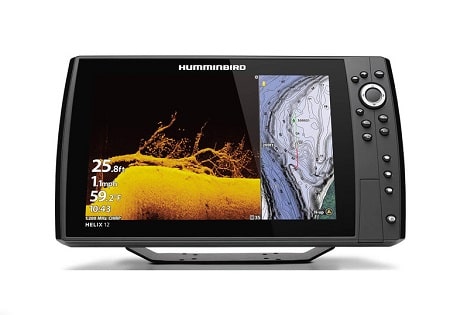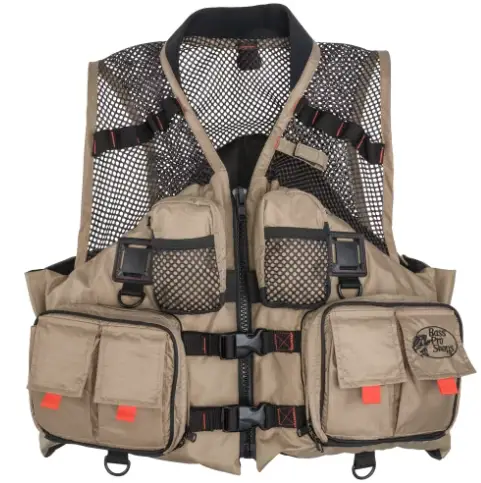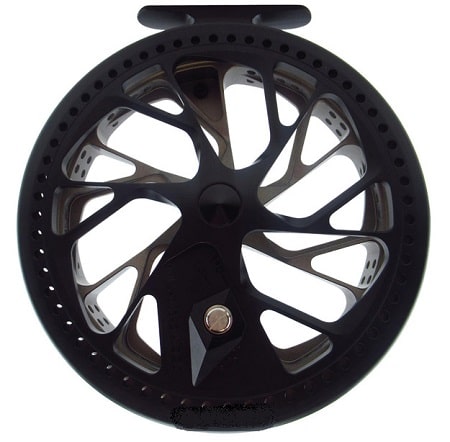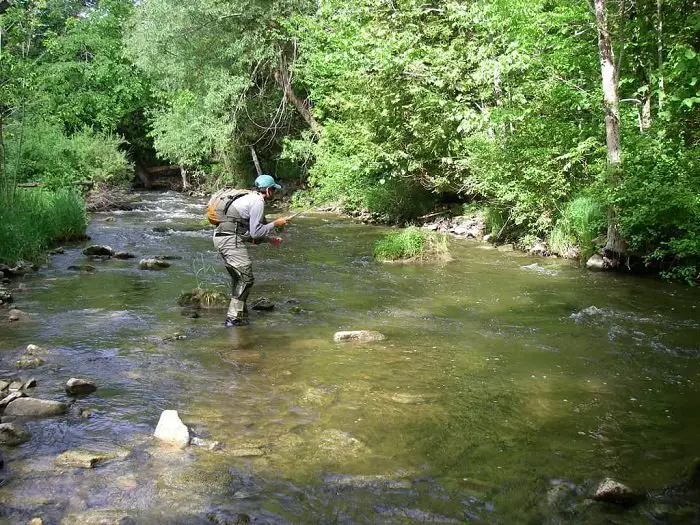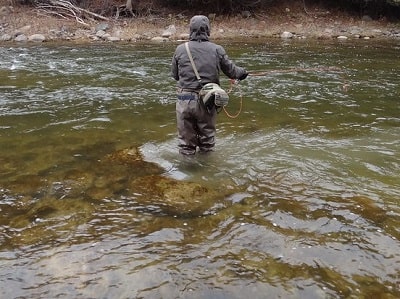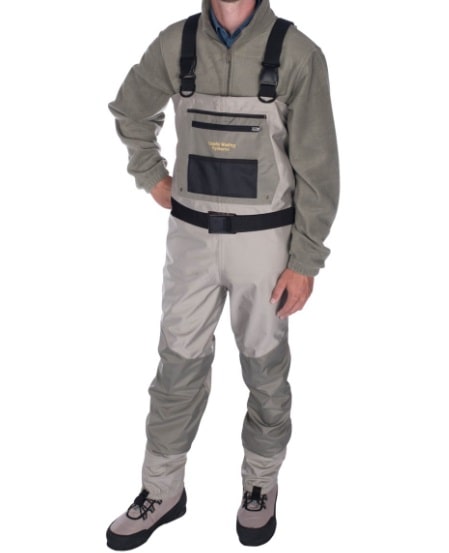Best Fish Handling Gloves For Grip And Protection
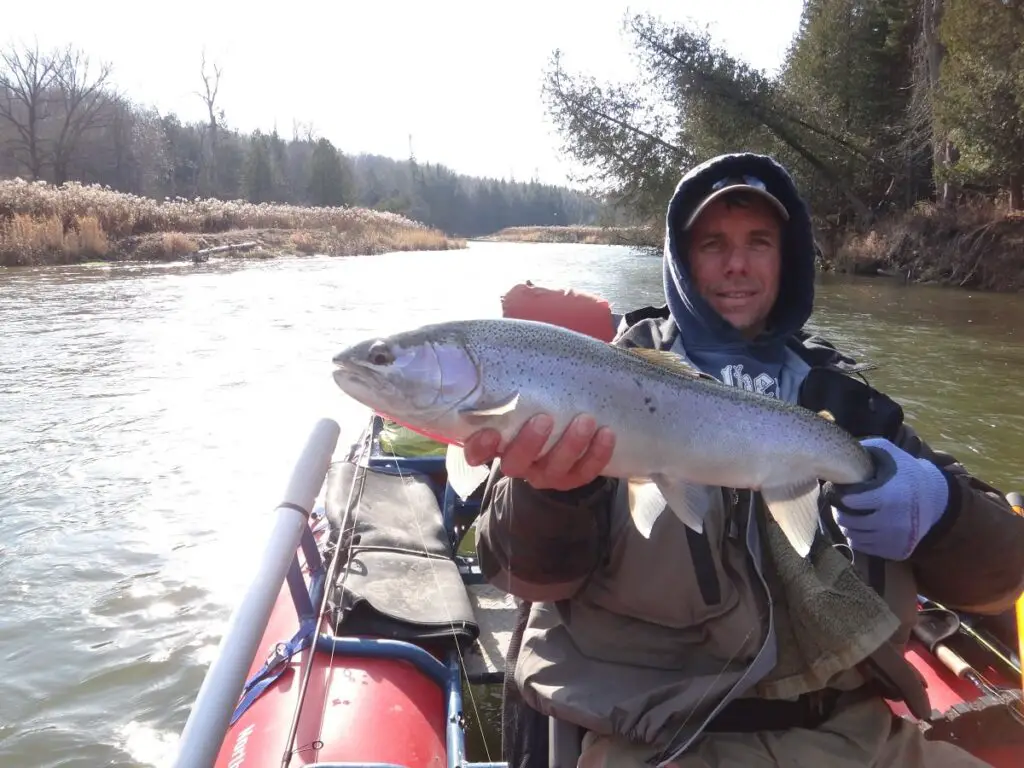
You’ve seen it before, someone goes to pick up a big fish out of the water for a picture, and the fish flips and twists, and they lose grip, and the fish is gone before the picture. I’ve even done this once or twice just handing a fish to a client, oops.
But, I now use some of the best fish handling gloves to enhance my grip, and I provide at least a tailing glove to my clients when they are ready to grab a fish for a picture.
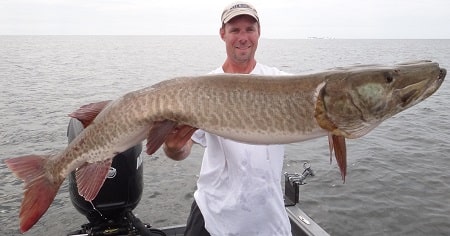
I’ll even use fishing handling gloves to land or handle large fish like a chinook salmon, which can be tailed easily.
When I guide for pike and musky, both my clients and I use a different type of glove to protect our hands from hooks, teeth, and gills.
The best fish handling gloves are thin like body armor to protect your wrists, hands, and fingers but also to ensure a good grip. I list 4 gloves to choose from but I have two favorites that I’ve been using and testing on all species of fish.
#1 The Lindy Fish-Handling Glove nis my favorite for handling toothy fish like like and musky or any fish where I put my hands in the gills to control the fish. This gill rakers used to rip my fingers apart until I got smart and started wearing this glove.
#2 The other glove I really like for handling trout, steelhead, and salmon is the Berkley Coated Fishing Gloves. This glove provides less protection from hooks and shart teeth but works well to grip the fish, and the coated fingers and palm keep the fish’s protective slim in tact better than some other gloves.
Understanding Fish Handling Gloves
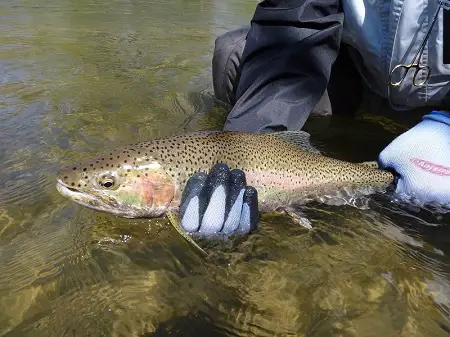
If I had to guess, the best fishing handling gloves will be made from a material that will double or triple your grip on a fish. There are a few different types to consider.
What about the old-school cotton gloves, are these still good? The answer is yes and no. Cottom gloves are inexpensive, they provide good grip, but they are bad for the protective coating and the survival of released fish. Only use them if you plan to keep the fish to eat.
Are metal mesh gloves good? Some gloves even look like chainmail armor for your hands which are good for filleting fish, but they are not the best for landing fish.
The best gloves for fish handling gloves can also be used to fillet fish so they should also give you a good tactile feel for the fillet knife and the meat of the fish while you fillet it. The better they feel, the less likely you will waste meat or slip and injure yourself.
The gloves have to protect equally well against cuts and puncture wounds without interfering with your ability to fillet your fish.
I’ve seen angler use all kinds of gloves they shouldn’t, and I’m guilty of trying out some of these gloves too. Those gloves might be made from neoprene, latex rubber, or even cloth with a textured rubber coating for handling fish.
Key Features of High-Quality Fish Filleting Gloves
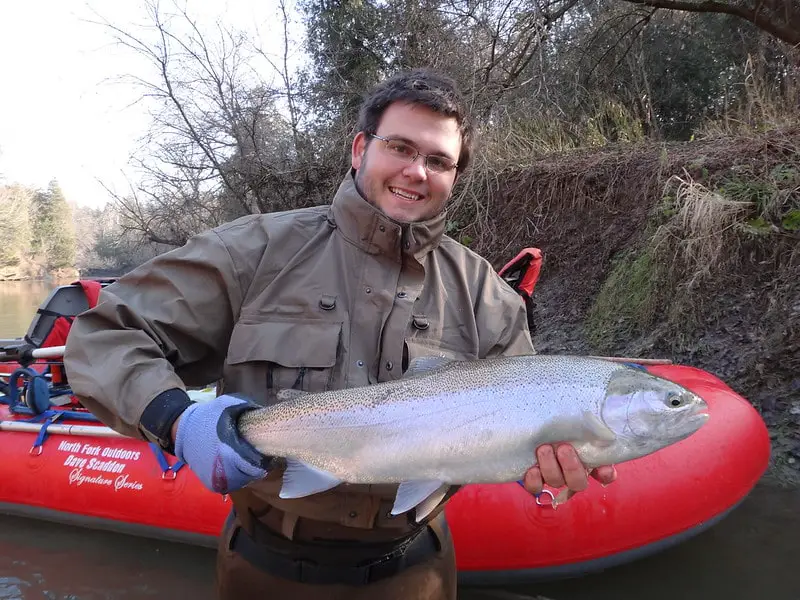
High-quality fish-handling gloves are made from various materials that enhance your grip and protect the slimy mucus that forms on many fish, and are durable enough to handle hundreds of fish.
They should also be made from material that is easy to clean so they don’t rot and stink.
You also want gloves that are a good fit and not tight so they will slide on and off easy when the glove and your hands are wet. I know from experience some gloves are really hard to put on wet hands.
No matter which type you prefer, you should look for quality gloves that fit comfortably and make it easier to handle a slippery fish.
Top Gloves
The following are four of the best-rated fish-handling gloves that you can buy.
1. Lindy Fish Handling Glove: Best Hand Protection
When I guide for musky, I used to tell my wife that if my fingers weren’t scrapped up, it meant I didn’t have a good day. The gill rakers scraped the crap out of my hands until my hand became infected and I started wearing gloves. The glove of choice was the Lindy glove.
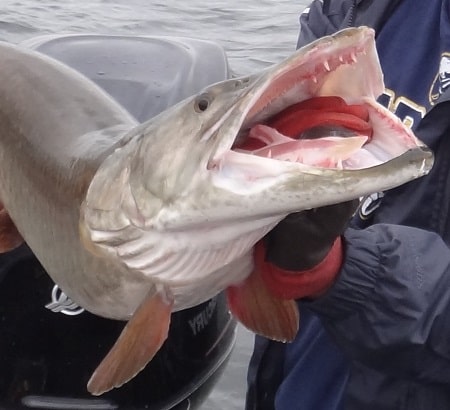
SuperFabric is the special ingredient that makes the Lindy Fish-Handling Gloves possibly the best combination fish handling and fish fillet gloves available.
SuperFabric is a special blend of nylon-poly fabric that has a layer of tiny and very hard guard plates that protect your hands and fingers against cuts and punctures from toothy fish, gills, and while cleaning or filleting fish.
The plates are spaced enough to enable good breathability without sacrificing the material’s puncture resistance. The fish-handling gloves clean easily and don’t hold fish odors.
2. Berkley Coated Fishing Gloves: Best Lightweight Glove
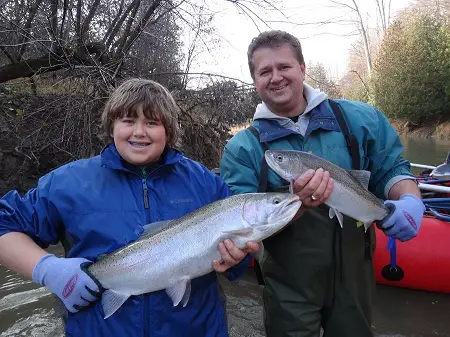
When fishing for non-toothy fish, this is the glove I use and the glove I hand to my clients so they are less likely to drop their big fish.
The washable Berkley gloves for fish handling come in one size and are made from a cotton and polymer material.
A textured coating on the palms and fingers gives you an exceptional grip on slippery fish and makes it a lot easier to handle them. The gloves are flexible and durable but do not protect against puncture wounds and cuts that might occur while handling fish. Also, these are dirt cheap at under $4.00.
3. Rapala Men’s Fisherman’s Gloves
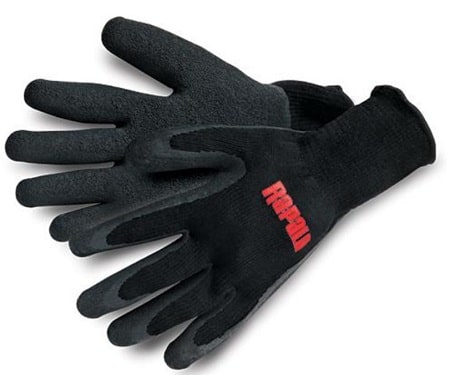
If you want slightly better quality and more durability than the Berkley glove, then give these a try. For whatever reason, mine lasted twice as along as the Berkley gloves.
The incredibly affordable Fisherman’s Gloves by Rapala is another glove that I have tested out on plenty of fish.
It has a shell made of blended cotton and polyester with a latex coating that makes the durable gloves for fish handling resistant to teeth, dorsal fins, and gill plates while you handle, clean, and fillet fish.
A non-slip material makes it easier to hold onto wet or slimy fish, and the gloves are machine-washable and drip dry afterward.
4. Big Worm Fishing – Most Positive Reviews
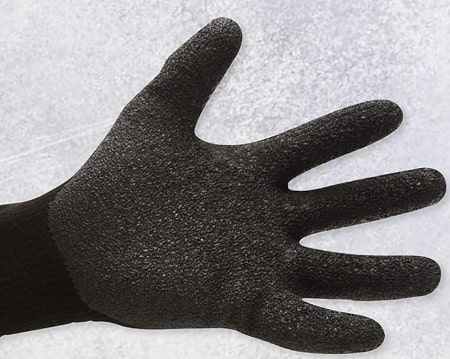
I have clients come out with these gloves so I’ve seen them in use and got to try them out. They are also one of the highest-reviewed fish-handling gloves on Amazon.
They are a good glove with a textured and rubberized material on the palms and fingers ensures a good grip while protecting against fish slime, cuts, and punctures.
The soft material covers the wrists as well as the hands and fingers but never compromise your manual dexterity while cleaning your fish. When you are done, the gloves for fish handling clean easily by running them through the washing machine. The fish slime cleans off while keeping the gloves sanitary.
Tight Lines
Graham

